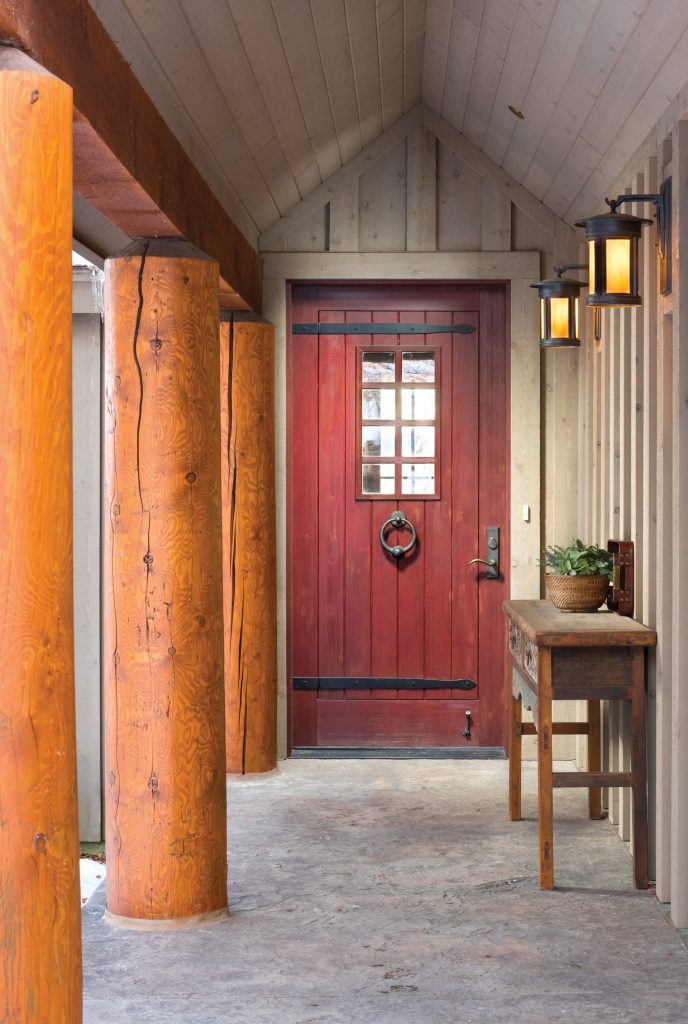There are pros and cons of being your own general contractor.
For many people, part of the dream of building their own home is the chance to be closely involved with every part of the process, from choosing the site to designing the floorplan to selecting fixtures and finishes. But some people take the next step, choosing to act as their own contractors, as well.
Why Do It?
People opt to handle their own contracting for a variety of reasons, but a big one is to reduce costs. General contractors charge a management fee that can add 10-20 percent to the cost of materials and subcontractors, so handling your own project can potentially save a significant amount of money.
It can also be a personal choice based on the tremendous satisfaction derived from managing the construction yourself and having total control over the entire project. Who else would care more about your new home than you? Acting as your own general contractor allows you to ensure everything is done just the way you want it.
You Need Knowledge and Experience
If you are considering acting as your own general contractor, think about your understanding of home construction, and specifically log home construction. If the biggest project you’ve taken on is remodeling a bathroom, you might want to think twice. “I think you need experience or knowledge of construction or construction management before taking on self-contracting,” says Joel Robinson, president of Log Homes of America in Jefferson, North Carolina. “Having contacts and connections with local trades will certainly make it easier, as well.”
Building an entire home from the ground up is a complex project that requires precise coordination. “People who are considering acting as their own general contractor should be well versed in the construction process,” advises Dorie Workman, vice president of Appalachian Log Homes in Ripley, West Virginia. “They should be proficient in the terminology and technology used by subcontractors and other professionals in the construction business.” It helps to be detail-oriented and organized, with good communication skills, as you will inevitably run into situations that require informed decision-making.

You Need to Invest Time
While you may save in costs by acting as your own general contractor, you will need to make an additional investment of time. This makes acting as your own contractor especially difficult if you are building a home in another area and can’t be on-site. “Even if you aren’t doing the labor yourself, it takes a significant amount of time to schedule and meet with sub-contractors and be available when they are on the site working,” says Robinson. “There’s a considerable amount of decisions that a general contractor makes on a job that the homeowner is never aware of or is able to see when the project is done.”
“Being the general contractor requires the day-to-day involvement in the building project, which can be a deterrent,” says Workman. “It will be a commitment to planning, organizing, calling, estimating, scheduling, meeting, and executing all the integral details of a successful log home building project.”
You’ll need to have a full understanding of the project and timeline, including permitting and inspection. And sometimes, the math doesn’t pencil out: errors due to inexperience or timeline delays can end up costing you as much as (or more than) you would have paid a general contractor. “Often the lack of experience in these areas will end up costing more and chipping away at any projected savings from managing a project itself,” says Workman. And there can also be a big cost in terms of quality of life. “The added stress of juggling all these issues along with a job and family responsibilities is often overwhelming and not worth the time and effort.”
You Need Skilled Helpers
To increase satisfaction and minimize frustration, Workman recommends going into the project with your eyes open by first getting a thorough understanding of the requirements of acting as a general contractor, including the time commitment. If you have plenty of free time, background knowledge, and connections with local trade contractors, you’ll be in a better position to have a positive experience and end up with the home of your dreams.
If you aren’t an experienced builder with your own crew, Robinson advises that instead of relying on friends and family for help, hire an experienced crew to do the shell dry-in. “That does a couple things for them: 1) it gets the job done quicker, and 2) it gets your log and timber materials out of the weather quicker.” That allows you as general contractor to get to work coordinating subcontractors to handle electric, HVAC, plumbing, and roofing. “That leaves doing interior finish work like wall coverings, flooring, cabinetry, trim, etc. for the homeowner,” says Robinson. “The interior work is something more people are familiar with.”
Avoid Common Pitfalls
Workman and Robinson caution homeowners to avoid these common pitfalls:
- If you are financing your project, make sure your financial institutions will allow you to self-contract and see if there is a time allowance that will restrict you in any way.
- Seek trade subcontractors who have experience working on log or timber frame home projects.
- Recognize that the trade subcontractors you work with see your home as a one-time job, so they may be more responsive to their regular clients, who keep them in business year after year.
- Check references for all subcontractors. Talk to homeowners and to general contractors who have worked with them in the past. Look for subcontractors who are reliable and do high-quality work on time and on budget.
- Depending on your state, there may be different regulations about self-contracting that you’ll need to learn and comply with.
The decision to act as your own general contractor often comes down to three things: knowledge, budget, and time. If you have the necessary background knowledge, want to save money, and have plenty of time to devote to the project, acting as general contractor for your own home project may be right for you.

